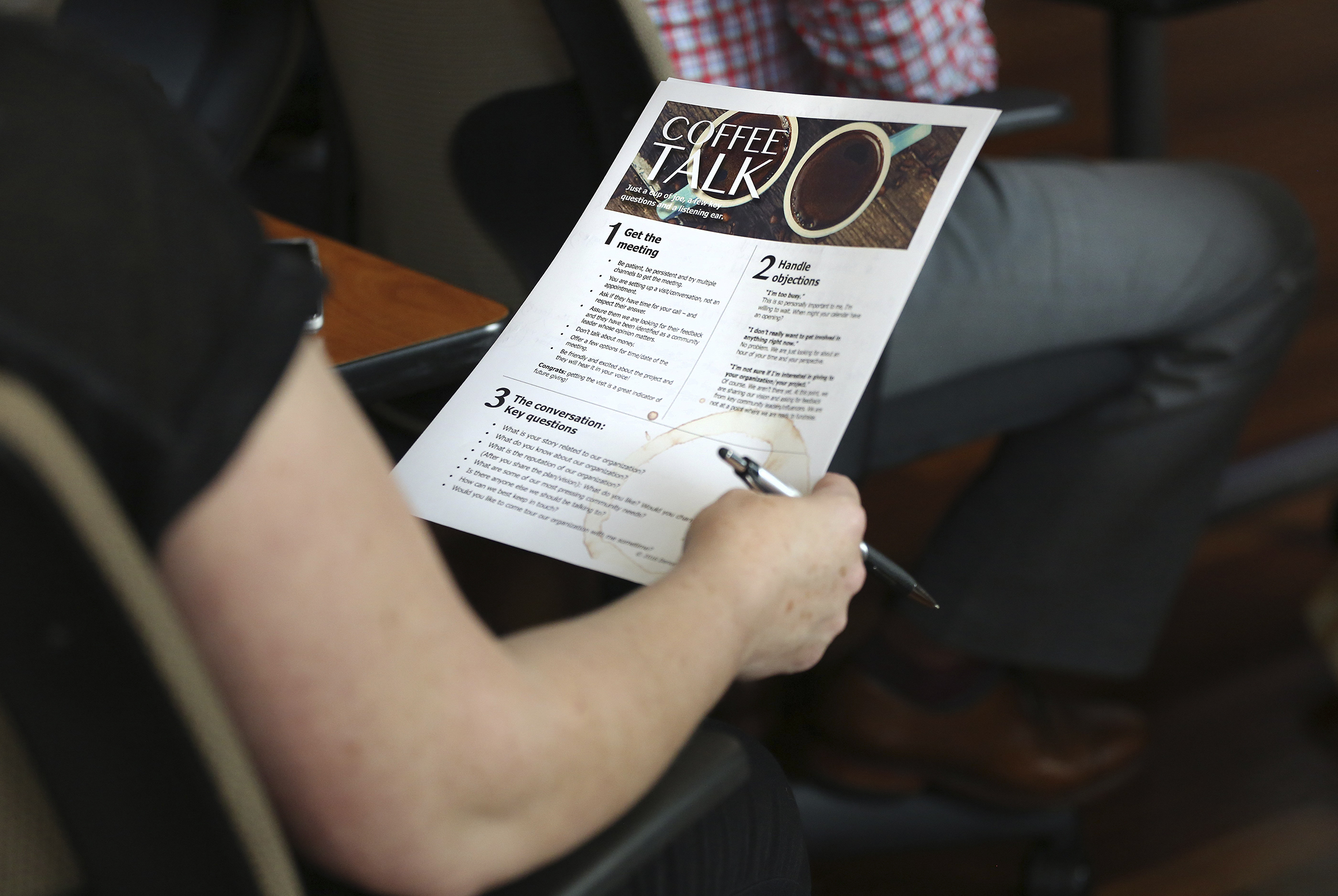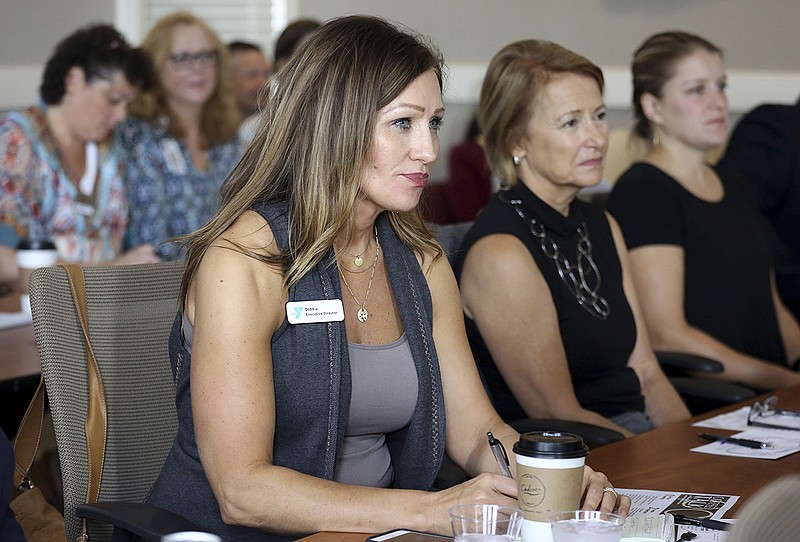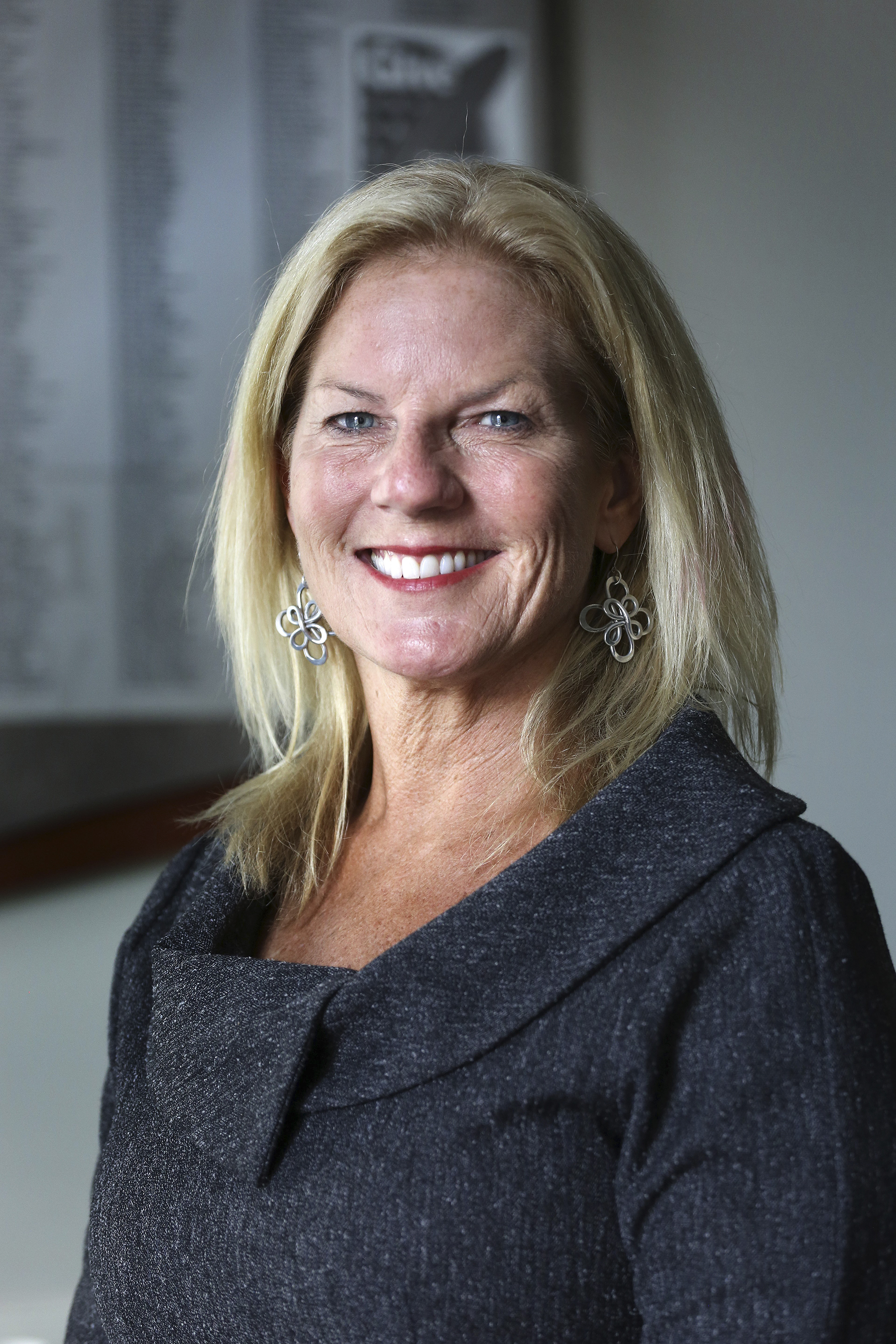Chattanooga has gained national and international recognition as a city of innovators, but it's not always the tech companies with seed money disrupting the status quo.
With state and federal funding dwindling for social services in recent years and more charities competing for dollars, the nearly 1,700 nonprofits in Hamilton County are having to work together rather than against each other to meet the community's needs. Just six years ago, there were only 960 nonprofits in Hamilton County, but due to changes at the Internal Revenue Service, it is much easier to get tax-exempt nonprofit status. Consequently, the number of nonprofits has grown drastically.
The change has led local organizations to get creative and collaborative.
Venture Forward, formerly called the Center for Nonprofits, plans to break ground on its new "Hub for Social Innovation" in early 2019, which will be on the first floor of the United Way of Greater Chattanooga building off Market Street downtown. The idea behind the hub is that nonprofits can be more effective when they work together, according to Laura McCann, the executive director of Venture Forward.
"This is not your grandfather's nonprofit anymore," McCann says.
Venture Forward receives 60 percent of its funding from the local United Way and was created to serve as a resource for nonprofits in the area. The hub will be a "community, problem-solving space," McCann said. Anybody - not just Venture Forward nonprofit members - can use the space.
McCann said that in recent years the agency has started to divide and list its more than 360 nonprofit members based on similar missions. When someone comes to Venture Forward wanting to help or start their own nonprofit, she provides a list of agencies already serving that mission to determine if there are still unmet needs. This can help determine where in the community resources aren't being utilized and where services are being duplicated.
"I think the big push in Chattanooga right now is that we don't want people being siloed and we want people collaborating," McCann says. "We are all kind of looking at who we are serving, what are we offering in programs and how we can best collaborate so that we are maximizing our resources."
And while United Way and Venture Forward have the resources and reach to connect the nearly 1,700 nonprofits throughout Hamilton County, the Community Foundation of Greater Chattanooga has re-imagined its grant process to provide funds for nonprofits that need more help reaching the community they serve.
When the foundation adopted its new strategic plan in 2017, president Maeghan Jones said staff approached community leaders about how they could improve the grant-making process.
Leaders from Metropolitan Ministries, green/spaces, Bridge Scholars, La Paz Chattanooga, Chattanooga Community Kitchen and others provided their insight, and what followed was a shift from the way many foundations have traditionally approached funding nonprofits in their communities.
The new grant process focuses on addressing the root causes of poverty in Chattanooga, Jones said. Funding priority areas include affordable housing, quality public education, affordable health care and community engagement.
In the past, foundations have typically provided funding support for programs. But local nonprofits explained that their biggest need is to build capacity within their organizations to address some of the major problems the area faces.
"I think philanthropic and nonprofit sectors have been talking about this for a number of years," Jones said. "And anybody who has been running a nonprofit has been saying we need these capacity-building resources to meet the needs of the community."
 An attendee of a seminar by Jon Simon called “Pain in the Ask" looks over a flier given out during the event at United Way of Greater Chattanooga Wednesday, October 3, 2018 in Chattanooga, Tennessee. About 50 people were in attendance at the event that was a partnership between Venture Forward and the Metropolitan YMCA.
An attendee of a seminar by Jon Simon called “Pain in the Ask" looks over a flier given out during the event at United Way of Greater Chattanooga Wednesday, October 3, 2018 in Chattanooga, Tennessee. About 50 people were in attendance at the event that was a partnership between Venture Forward and the Metropolitan YMCA.The foundation received 45 applications this year for project-based funding and multi-year funding to build the capacity of local nonprofits. Another change to the grant process is that now a committee comprised of board members and community volunteers who represent diverse perspectives now choose who gets funding. In the past, a committee of the foundation's board decided.
Community Foundation currently invests in Chattanooga 2.0 to support educational improvement strategies. But Robin Posley, director of community impact for the Community Foundation, said next spring they will also be offering a "Small and Inspiring" grants program for Hamilton County Schools. Teams of teachers will be invited to apply.
Also in the spring of 2019, the foundation will provide matching funding for all Hamilton County Schools through the Donors Choose platform - a website that allows teachers to post their classroom needs for crowd-funding opportunities. During a pilot, Posley said 84 percent of the projects funded through the platform were from donors outside Tennessee.
Community Foundation's board also voted to get creative with some of their endowment funds by investing them in a "social responsible investment strategy," Jones said.
"For a foundation like ours that is interested in combating poverty, this might mean investing in a company that is creating jobs in a low-income neighborhood, building affordable housing or providing a range of financial services to low-income individuals," she says.

